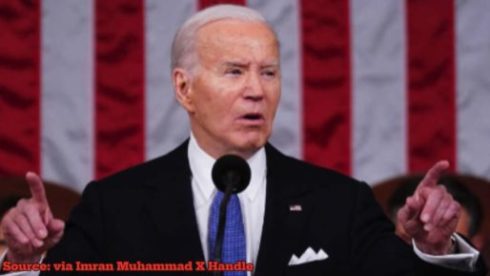President Joe Biden has made a strong commitment to addressing the issue of high prescription drug costs in the United States. In a recent statement, he emphasized that it is unacceptable for Americans to be forced to skip doses, split pills, or forgo prescriptions entirely due to financial constraints. President Joe Biden acknowledged the widespread struggle many Americans face in affording necessary medications, pledging to take decisive action to alleviate this burden.
President Joe Biden’s statement reflects a growing concern over the accessibility of healthcare in the United States, particularly regarding prescription drugs. By highlighting common coping strategies used by those unable to afford their medications, the President has brought attention to the real-world consequences of high drug prices. This focus on affordability is expected to be a key component of his healthcare agenda moving forward.
A Call to Action: Addressing the High Cost of Prescription Drugs
President Joe Biden’s declaration serves as a rallying cry for comprehensive reform in the pharmaceutical industry. By framing the issue as one of urgent national importance, PreeBiden is setting the stage for potential legislative and executive actions aimed at reducing drug costs. This call to action is likely to resonate with millions of Americans who have been directly impacted by rising prescription prices.
The emphasis on affordability aligns with broader healthcare reform efforts and reflects a growing consensus that the current system is unsustainable. Biden’s commitment to this issue suggests that his administration will prioritize finding solutions to the complex problem of drug pricing, potentially through a combination of policy changes, industry regulation, and consumer protections.
The Burden of Unaffordable Prescription Drugs
The high cost of prescription medications has become a significant financial burden for many Americans, often forcing individuals to make difficult choices between their health and other essential expenses. This situation can lead to serious consequences, including worsened health outcomes and increased long-term healthcare costs as conditions go untreated or undertreated due to financial constraints.
President Joe Biden’s focus on this issue acknowledges the far-reaching impacts of unaffordable prescription drugs. Beyond individual health consequences, high drug prices can strain family budgets, contribute to medical debt, and exacerbate existing health disparities. By committing to address this problem, the administration is taking a step towards improving not just healthcare accessibility, but also overall economic well-being for many Americans.
A Comprehensive Approach: Addressing the Root Causes
The Biden administration’s plan to make prescription drugs more affordable is expected to involve a multi-faceted approach that targets the underlying factors driving high prices. This comprehensive strategy may include measures to increase transparency in drug pricing, promote competition within the pharmaceutical industry, and reduce out-of-pocket costs for consumers.
Potential initiatives could include allowing Medicare to negotiate drug prices directly with pharmaceutical companies, capping out-of-pocket expenses for seniors, and facilitating the importation of lower-cost drugs from other countries. By addressing these systemic issues, the administration aims to create a more sustainable and equitable prescription drug market that benefits all Americans.
Collaboration and Bipartisanship: Key to Success
The success of President Joe Biden’s initiative to lower prescription drug costs will largely depend on effective collaboration across political lines and among various stakeholders. The administration will need to work closely with Congress, healthcare providers, patient advocacy groups, and pharmaceutical industry leaders to develop and implement effective solutions.
Achieving bipartisan support for drug pricing reform may prove challenging, given the complex interests involved and the historically contentious nature of healthcare policy. However, the widespread impact of high drug prices on Americans across the political spectrum may create opportunities for finding common ground. The administration’s ability to build coalitions and navigate these political dynamics will be crucial in turning President Joe Biden’s commitment into tangible policy outcomes.
A Commitment to Healthcare Access: A Fundamental Right
President Joe Biden’s pledge to make prescription drugs more affordable reflects his broader vision of healthcare as a fundamental right for all Americans. This commitment aligns with his campaign promises and previous efforts to expand healthcare access, including his role in the implementation of the Affordable Care Act during his tenure as Vice President.
By framing affordable prescription drugs as an essential component of healthcare access, Biden is reinforcing the idea that comprehensive healthcare reform must address not just insurance coverage, but also the affordability of treatments and medications. This holistic approach to healthcare policy underscores the administration’s commitment to creating a more just and equitable healthcare system, where financial barriers do not prevent individuals from receiving necessary medical care.














